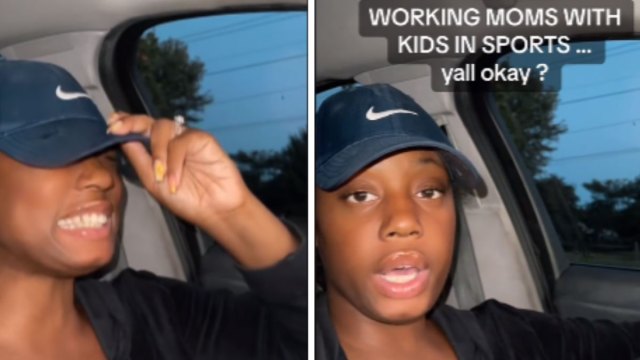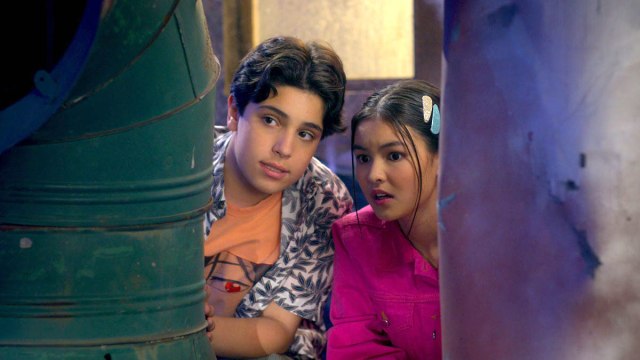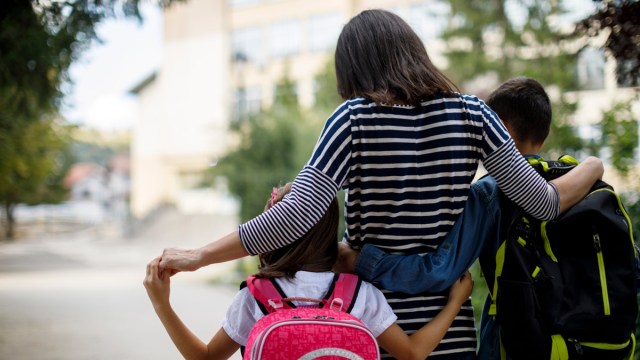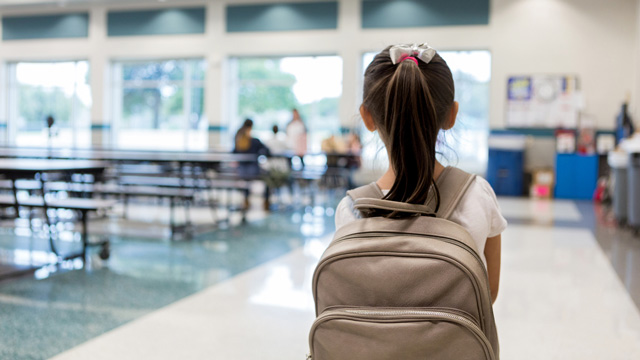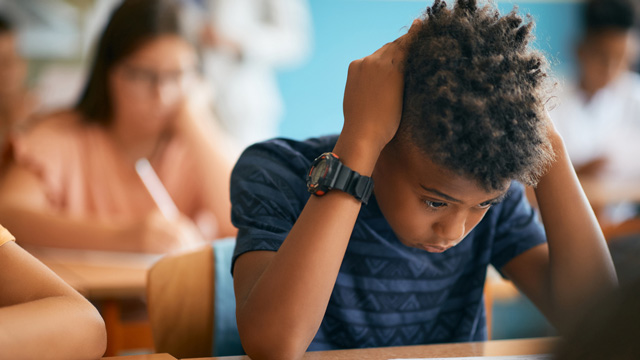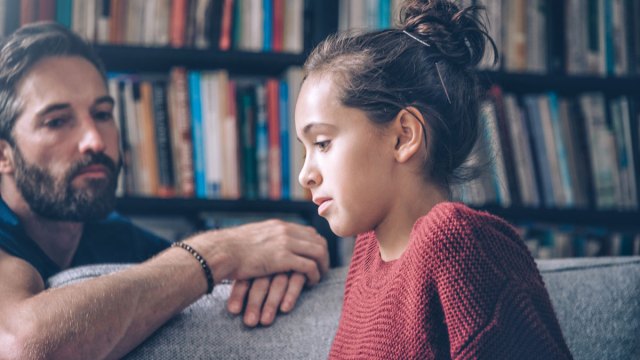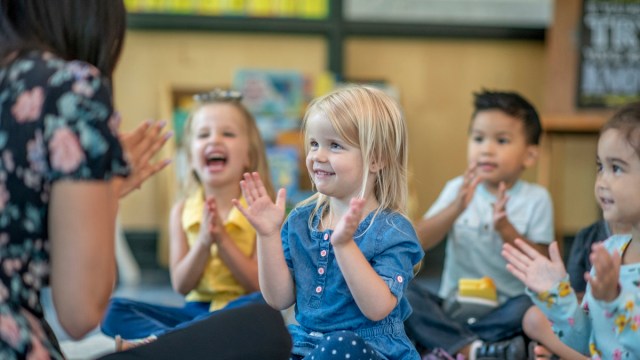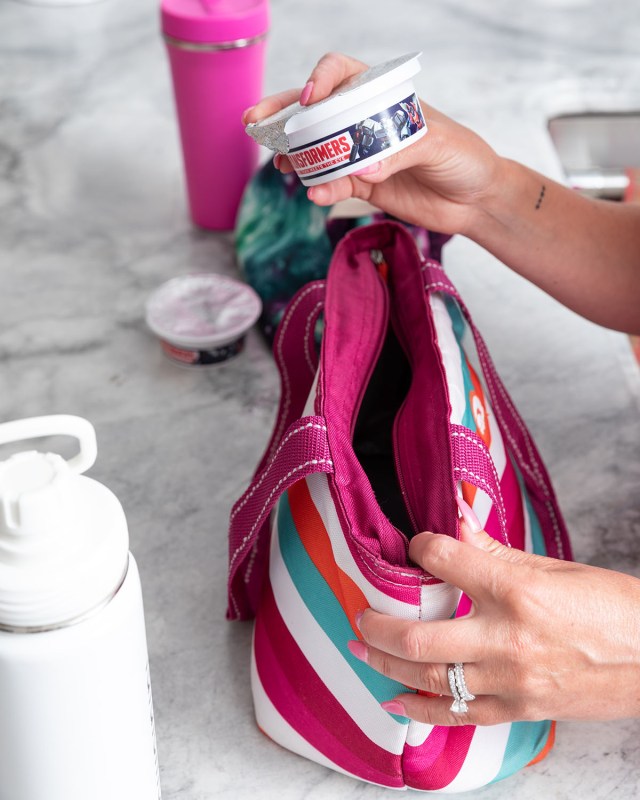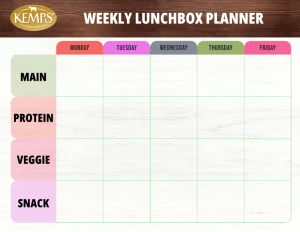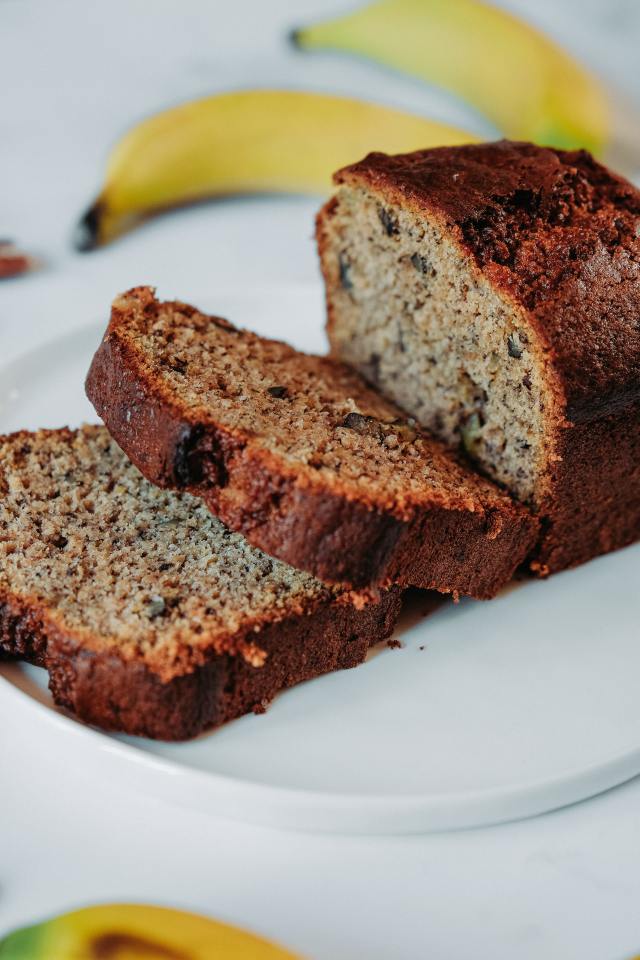These are meant to be friendly conversations that help parents get a window into their child’s school day
You know the drill: You drop your child off at school in the morning and wave goodbye as they walk through that doorway. Then, you wait all day for the elusive “How was your day?” interrogation to unfold all of the day’s mysteries (Good luck with that, BTW). What the heck is your kid doing all day—and are they doing OK at it?
Guess what? Your child’s teacher knows! And the parent-teacher conference is your chance to get the inside scoop on how your child is doing in the classroom and how they compare to their peers when it comes to behavior, social-emotional skills, and schoolwork.
According to Michael Warner, a Los Angeles-based elementary school teacher who’s been in the classroom for more than 20 years, “The purpose of a parent-teacher conference is to convey information that we see at school to the parents. It’s a chance to let you know about things that we might see at school that you don’t see at home.”
But getting all that uber-important information in a teensy little time slot can feel overwhelming. Whether you’re just starting on your child’s school journey or you’re an old pro with a fair share of P/T conferences under your belt, here’s what you can expect from—and how to prepare for—this crucial rite of passage.
What Happens at a Parent-Teacher Conference and Why

So, you’ve got your 20-minute time slot, the clock has started, and your kid’s teacher looms in front of you like a talk therapist waiting for you to unravel. Now what? Should you pour your heart out and unload your fears, excitement, and expectations about your child’s school experience? Or should you let your teacher do all the talking and heed any advice they may offer?
The answer? Maybe a little bit of both. Simply: The parent-teacher conference is a way for both parents and teachers to learn how to best help your child succeed. You’re on the same team.
“If it’s for a student who is doing well academically and who behaves in class, then the parent-teacher conference is more for the parents to hear how great their child is doing. If it’s for a kid who is struggling academically and/or exhibiting challenging behaviors, then I’d say it’s equally important for both the parent and the teacher,” said South Park, CO, second-grade teacher Kristen Kraus.
These 15 to 20-minute meetings are generally held once (sometimes twice) a year—usually a third to halfway through the school year so teachers have enough time to collect information on how your child handles the academic and social demands of whatever grade they’re in.
Related: 16 Things Parents Don’t Need to Worry About (According to Teachers)
What Teachers Will Discuss with Parents
There’s no universal script for the parent-teacher conference. Teachers will often use the time to show you samples of your child’s classwork and how their handwriting, work habits, and understanding have changed throughout the year. This means you may be met with piles of papers and drawings—little windows into your child’s day!—that your teacher will use as benchmarks of your child’s progress.
You may also learn whether your child is meeting the grade level standards, which vary by state, and lay out what public school students are expected to learn in each grade regarding reading, math, and other subjects. If your child is meeting these standards, breathe a sigh of relief and know you’re on the right track. If not, your teacher will usually outline what you can do at home to help supplement the school day or suggest reasons why your child might be struggling.
“If we’re telling you that your kid is struggling, we don’t love giving you that information, but we’ll give it to you because whether it’s a behavioral or an academic issue, we want them to succeed. We’re just trying to give you insight into things you may not see at home,” said Warner.
Related: An Open Letter to Parents… From Your Child’s Teacher
What Questions Parents Should Have for Teachers

Just like any important meeting, it’s best to come prepared. Have a list of topics or questions you’d like to ask—and be specific! If you notice your child throws a fit while doing math homework, ask what your teacher sees in the classroom. The more information you give the teacher, the more you can work to help your child.
Here are some questions to consider:
Can we set aside time at the end to talk about my concerns? Some teachers have a very set agenda for the P/T conference, so if you have a specific issue to discuss, tell your teacher right at the beginning.
How is my child doing socially? School isn’t just about academics. Forging social relationships and learning how to work as a group are arguably some of the most important things your child will learn during their early school years. Ask your teacher how your child is getting along with their peers and what struggles they might have on a social-emotional level.
Does my child have trouble paying attention? Have you suspected your child might have attention issues? Trouble socializing? Writing problems? According to Warner, while your teacher can’t diagnose ADHD, autism, or dyslexia, they can tell you about particular quirks your child may be showing in the classroom, including trouble sitting still, frustration over simple tasks, and trouble staying focused. Letting your teacher know your concerns also helps your teacher keep an eye out for markers as the year progresses.
Can I tell you about my child’s [insert condition here]?” For instance, if your child has a vision or hearing problem, make sure your teacher knows about it. Similarly, if something is going on at home that may affect how the child behaves in the classroom (the death of a family member, a looming divorce, illness in the family, etc.), let your teacher know.
What are my child’s strengths and weaknesses? You might know a lot of things about your child, but the exact way they behave in the classroom probably isn’t one of them. So ask your teacher where your kiddo shines… and where they may be falling short.
Can you give me suggestions for how I can help my child? Even if your teacher has nothing but rave reviews about your little scholar, there are likely still things you can do at home to keep up the good work. Ask your teacher what you can do outside of school to help your child, and you’ll likely get a customized recommendation that will play to your child’s strengths and weaknesses.
What’s the best way to get in touch if I have more questions? The P/T conferences aren’t the end-all, be-all of your relationship with your child’s teachers. Parents should remember that most teachers have an open-door policy when it comes to helping kids who are struggling. E-mail is usually the best way to get in touch, though some teachers prefer messaging apps like Class Dojo or WhatsApp, so ask what method works best.
Related: 14 Questions Teachers Wish You Would Ask About Your Kid
What NOT to do at the Parent-Teacher Conference
Parent-teacher conferences are meant to be friendly conversations that help parents get a window into their child’s school day. That said, there are some things that teachers want parents to know when it comes to what they shouldn’t do at this important meeting:
DON’T be late. “Not even a little bit. Our conferences are scheduled back to back to back with no wiggle room, and it’s already difficult to fit everything we want to share into a 20-minute appointment. Try to be early because if we have a no-show or a quick conference before yours is scheduled, we might have a few extra minutes to talk about your child,” said Kraus.
Let the teacher talk. We get it: You want to gush about your kid. Even more, you want to hear your teacher gush about your kid. But your teachers probably have a plan about how the meeting will go and what topics they’d like to address, so it’s best to let them take the lead—at least at first. If there’s one particular issue you’d like to discuss, let the teacher know at the start of the meeting. This way, the teacher can decide when to leave a few extra minutes.
Don’t hold back. “Be completely honest about how the school year is going for your child. We can’t improve on anything if we aren’t aware of what isn’t going well,” said Kraus.
Don’t ask for two conferences to accommodate divorced parents. Most teachers won’t accommodate two separate conferences for the same child, so don’t even ask. This is one of those times when parents need to “learn to work together in their child’s best interest,” Warner said.
Don’t forget to talk to your child beforehand. Depending on your child’s age, there’s a chance they have an opinion about how school is going! “Ask him or her what they think is most important to talk about,” Kraus said. You might be surprised by what they say.
Don’t take things personally. Be open-minded, even if you don’t like what you hear. If your teacher is telling you that your child is struggling, for instance, they are not trying to insult your child; they just want to help.
Don’t forget: Your teacher may be nervous, too. You’re not the only one who’s stressed. Warner says, “Your teacher is nervous, too. They just want to make sure they convey all the information to help your child.”






